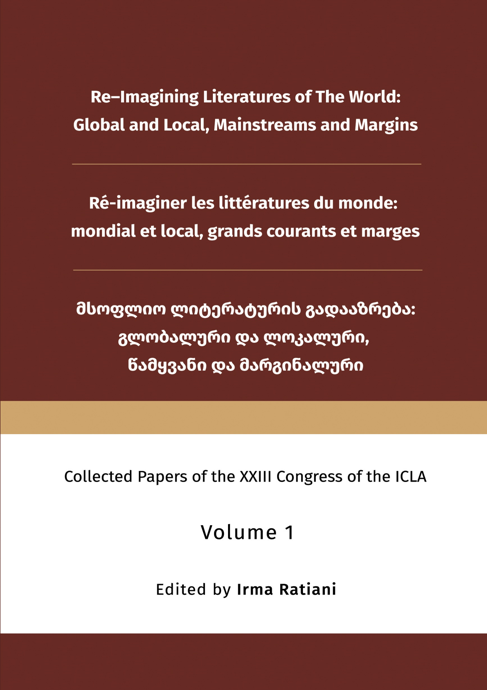Rewriting the past in O Vendedor de Passados (2004) and Teoria Geral do Esquecimento (2012)
Main Article Content
ანოტაცია
The novels Teoria Geral do Esquecimento (2012) and O Ven-dedor de Passados (2004) by José Eduardo Agualusa feature charac-ters who, on opposite sides of history (a colonist and a colonized), reconstruct and reposition their identities in the tumultuous social and political context after the independence and the end of the civil war in Angola, between the 1970s and the beginning of the 21st century.
The problematic relationship of the characters with their memories is structured from, and around, concrete places such as Ventura's house and Ludovica's apartment in the “Invejados” (the envied) building, which becomes the ultimate location vis-à-vis the post-colonial reality. Life within these places is regulated and circumscribed by political and social phenomena linked to colo-nialism’s violence and its repercussions. Ludovica’s and Ventura's efforts to isolate and barricade themselves from the outside world, generates a tension between the space they inhabit and the world that surrounds them.
Throughout the action, the limits of these houses are disso-lved and invaded by the radical transformations that from the outside interfere with the inside, reorganizing and intervening in the characters' awareness of their identities and memories, forcing the recognition of their biographies and therefore a historical repositioning. This process takes place through the infiltration and contamination between colonial history, the civil war that follo-wed, and the characters' biographies.My reading of these two no-vels focuses on how the tension between colonial reminiscences and the new postcolonial narratives are materialized in the biographies of the protagonists. From the reclusion of their houses the protagonists rewrite the past in their walls, through their interac-tion with the visitors, the intruders, their neighbors, the books, the sounds of the radio that infiltrate the structures of the houses and transform their interior landscape and the events that they can watch through their windows.
